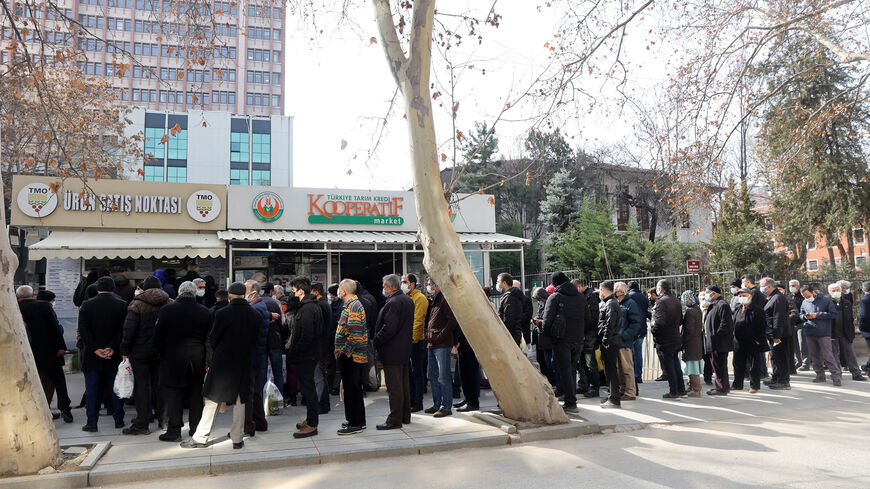Turkey’s Central Bank hiked interest rates by a drastic 6.5 points to 15% on Thursday, a dramatic U-turn from Turkish President Recep Tayyip’s Erdogan long-term but unconventional economic policy of low-interest rates, which has caused soaring inflation.
The tightening of monetary policy follows the central bank's first monetary policy committee meeting held under the bank’s newly appointed first-ever female Governor Gaye Erkan, “The committee decided to begin the monetary tightening process in order to establish the disinflation course as soon as possible, to anchor inflation expectations and to control the deterioration in pricing behavior,” a statement from the bank said.
“Monetary tightening will be further strengthened as much as needed in a timely and gradual manner until a significant improvement in the inflation outlook is achieved,” the statement added.
The Turkish lira dropped to its weakest value against the dollar on record after the small-than-expected rate hike. As of mid-afternoon Istanbul time on Thursday, there were 24.17 liras to the dollar, compared to 23.81 before the announcement.
A rate hike was highly expected after Erdogan signaled that his country was abandoning its long-term economic policies by appointing Erkan and new Finance Minister Mehmet Simsek as the new czar of economic management. Simsek is known as a champion of the free market and the independence of the central bank. Erkan, who was tapped as the new head of the central bank in early June, is a former US Wall Street executive. The rate hike was lower than expected. A Reuters poll released last week put the expectation of a hike up to 20%.
Under political pressure from President Erdogan, Turkey’s Central Bank brought the policy rates as low as 8.5 in a series of unorthodox interest rate cuts over the past years to boost economic growth at the expense of skyrocketing inflation. Turkey's economic policy is unlike the majority of its regional and G-20 peers that hiked the rates to weather the impacts of first the coronavirus pandemic and then Russia's war on Ukraine.
The cuts fanned Turkey’s already high inflation to record levels, leading to a cost-of-living crisis. The inflation reached a 24-year high of 85.5% in last year before easing to 39.6%, largely due to the favorable base effect. In a bid to contain the devaluation of the Turkish lira against the hard currency, the bank depleted its foreign reserves by funnelling it to the market through back-channel means. The central bank's net foreign reserves fell below zero in May, according to official figures.








